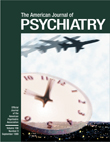Effectiveness of Psychotherapy for Personality Disorders
Abstract
OBJECTIVE: The authors examined the evidence for the effectiveness of psychotherapy for personality disorders in psychotherapy outcome studies. METHOD: Fifteen studies were located that reported data on pretreatment-to-postreatment effects and/or recovery at follow-up, including three randomized, controlled treatment trials, three randomized comparisons of active treatments, and nine uncontrolled observational studies. They included psychodynamic/interpersonal, cognitive behavior, mixed, and supportive therapies. RESULTS: All studies reported improvement in personality disorders with psychotherapy. The mean pre-post effect sizes within treatments were large: 1.11 for self-report measures and 1.29 for observational measures. Among the three randomized, controlled treatment trials, active psychotherapy was more effective than no treatment according to self-report measures. In four studies, a mean of 52% of patients remaining in therapy recovered—defined as no longer meeting the full criteria for personality disorder—after a mean of 1.3 years of treatment. A heuristic model based on these findings estimated that 25.8% of personality disorder patients recovered per year of therapy, a rate sevenfold larger than that in a published model of the natural history of borderline personality disorder (3.7% recovered per year, with recovery of 50% of patients requiring 10.5 years of naturalistic follow-up). CONCLUSIONS: Psychotherapy is an effective treatment for personality disorders and may be associated with up to a sevenfold faster rate of recovery in comparison with the natural history of disorders. Future studies should examine specific therapies for specific personality disorders, using more uniform assessment of core pathology and outcome.



